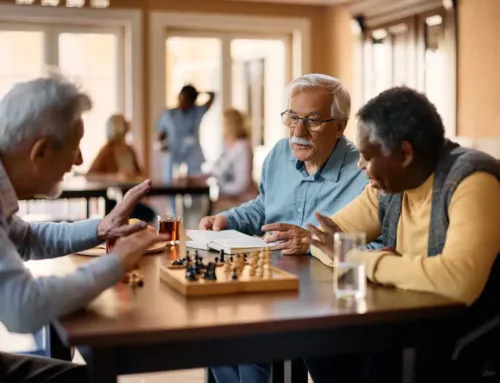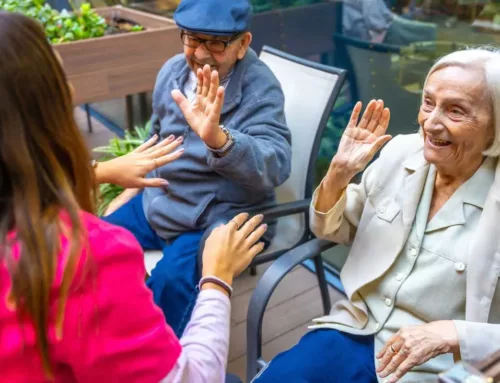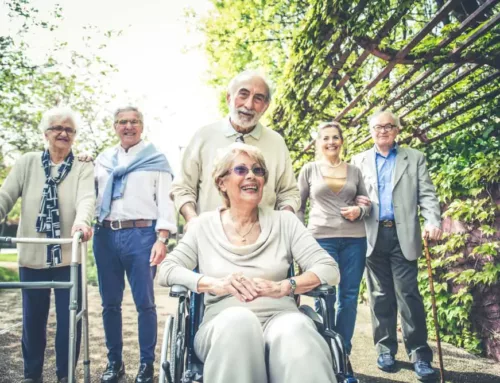
While assisted living communities in Arizona provide an extensive array of support to seniors across a wide range of needs, nothing can ever replace a resident’s family. From resident siblings to adult children or grandchildren, family plays an essential role in a person’s life, and that doesn’t change as we age. Whether seniors live independently or in an assisted living community, the continued support and engagement from family members is important.
Moving to an Assisted Living Community
In addition to providing assistance with activities of daily life, a residential assisted living community is much like living at home. To help your loved one become acclimated and embrace the transition to supportive care, family members can visit and call often as well as participate in the abundance of activities provided by the community. Attending activities with resident loved ones can help during the transition period and leave residents feeling more secure and enabling them to adjust to their new routine and lifestyle more easily. The support of loved ones can make the transition process of moving into a senior living retirement community a lot smoother and easier.
Staying Close to Family & Friends
Additionally, it’s important for seniors to continue the meaningful relationships they’ve built and rely on even after they’ve moved into a senior care home. Family member visits, or calls provides residents with an added sense of stability and belonging. While residents are building new friendships, the support of family can give seniors the added confidence they need to relax and be themselves. Family members also offer a valuable support by listening to residents about their new community and discussing their new routines and friendships made. Family caregivers can also help monitor how well their resident loved one is adjusting or provide them with a little more attention and support if needed.
Suggestions for Staying Connected
Residents in a senior living community like Saguaro Ranch Luxury Assisted Living, develop meaningful relationships with their neighbors that are integral to socialization. However, family caregivers add additional support and a connection associated with familial bonds that can’t be underestimated.
To help your loved one make the transition to a residential care home, assisted living or senior living community near you, consider the following tips:
Honor special occasions. There is nothing quite like celebrating an important occasion with your family in person. Family members of loved ones in assisted living communities should consider planning trips to visit their resident loved one at least once a year for special occasions if they live far away. However, if you live in closer proximity, visiting several times a week or month is even better. Celebrating landmark occasions like a birthday with your loved one who lives in an assisted living community is an important way of enriching your life and theirs while maintaining a most beloved relationship.
Stay connected and informed. A big part of maintaining meaningful relationships with your loved one is staying informed about what’s going on in their life and in their community. Plan time to speak to your loved one or visit to learn about their new friends, hobbies, and experiences, as well share your own news about work, family, and friends. Moreover, try to foster regular and open communication with community caregivers about how your loved one is doing and how you can best support your loved one.
Staying connected to your loved one can make a dramatic difference in ensuring a smooth transition to their new assisted living community. When you’re unable to visit, calls or video chats are wonderful ways to share and stay up to date providing both you and your loved one with an opportunity to remain close and connected.
It’s important to treasure the time you spend together with your loved one residing in a residential assisted living community. The bonds we form with our family is one of the strongest relationships’ we will ever experience, so it’s important to remember to stay connected to your loved one in their new assisted living home.




